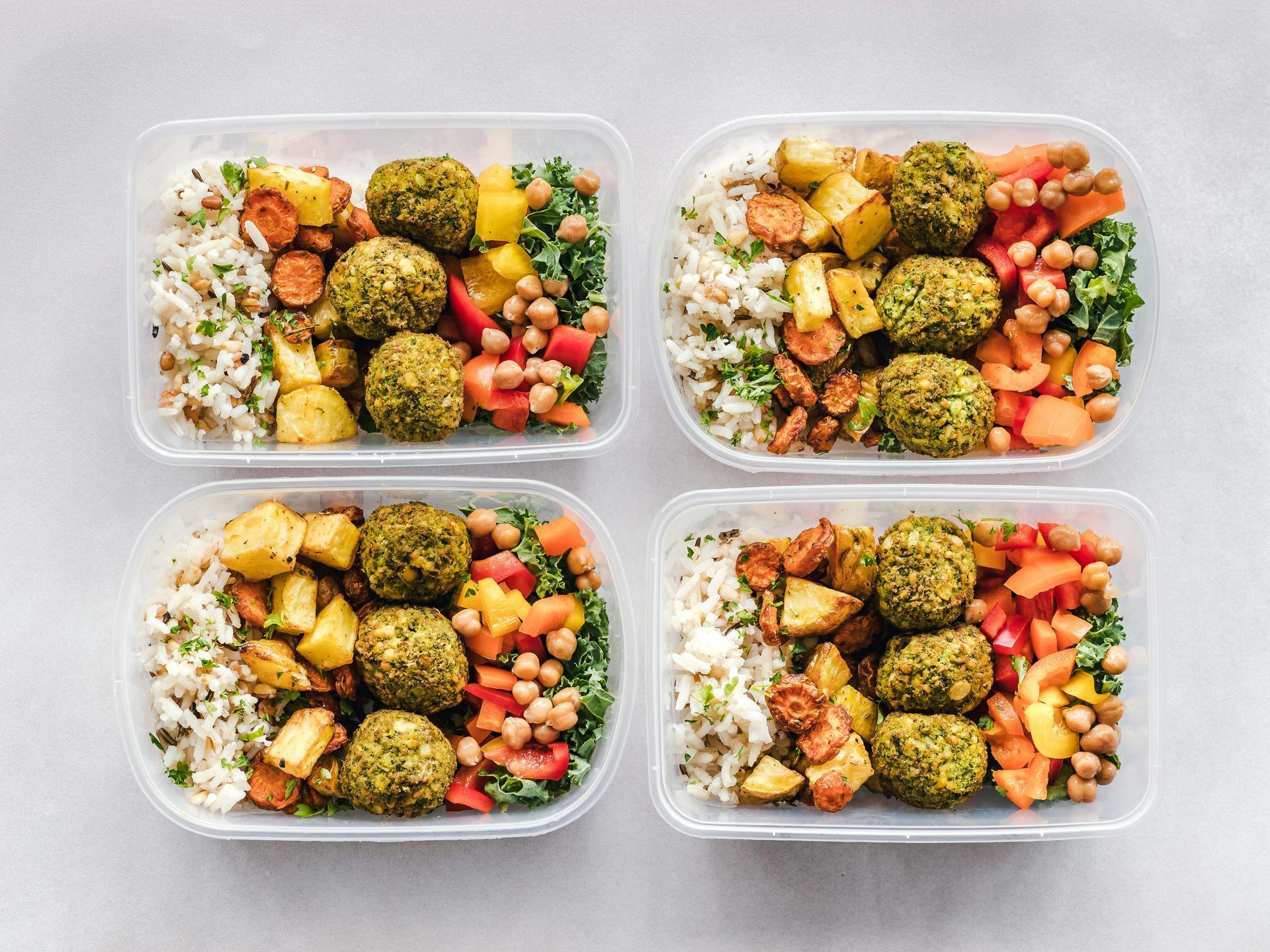The Benefits of Incorporating All Food Groups into a Healthy Eating Plan
The Benefits of Incorporating All Food Groups into a Healthy Eating Plan

A well-rounded diet is the foundation of good health.
While fad diets and extreme eating plans often demonise certain food groups, the truth is that a balanced diet incorporating all food groups is key to maintaining optimal health, energy levels, and overall well-being. Each food group provides unique and essential nutrients that our bodies need to function properly.
Here's a closer look at the benefits of including all food groups in your daily eating habits, along with a suggested meal plan to help you get started.
The Food Groups and Their Benefits
- Fruits and Vegetables: Fruits and vegetables are rich in vitamins, minerals, antioxidants, and fibre. They help protect against chronic diseases such as heart disease, stroke, and certain cancers. The fibre in fruits and vegetables aids in digestion and helps maintain a healthy weight by promoting a feeling of fullness. The variety of colours in fruits and vegetables also signifies different types of nutrients, so aim to "eat the rainbow" to get a wide range of benefits.
- Whole Grains: Whole grains like brown rice, oats, quinoa, and whole wheat bread are excellent sources of complex carbohydrates, which are the body's primary energy source. They are also rich in fibre, which supports digestive health, helps regulate blood sugar levels, and keeps you feeling satisfied longer. Whole grains also contain important B vitamins, iron, and magnesium.
- Proteins: Protein is essential for building and repairing tissues, producing enzymes and hormones, and supporting overall growth and development. Including a variety of protein sources such as lean meats, poultry, fish, eggs, beans, nuts, seeds, and tofu ensures you get all the essential amino acids your body needs. Additionally, proteins help with muscle maintenance and are particularly important for seniors to prevent muscle loss as they age.
- Dairy or Dairy Alternatives: Dairy products like milk, cheese, and yoghurt are excellent sources of calcium, vitamin D, and other nutrients that are essential for bone health. For those who are lactose intolerant or prefer plant-based options, fortified dairy alternatives such as almond milk, soy milk, or coconut yoghurt can provide similar benefits. Calcium is especially important for maintaining strong bones and teeth, particularly as we age.
- Healthy Fats: Not all fats are created equal. Healthy fats, such as those found in avocados, nuts, seeds, olive oil, and fatty fish like salmon, are essential for brain health, hormone production, and the absorption of fat-soluble vitamins (A, D, E, and K). They also play a role in reducing inflammation and supporting heart health. Incorporating healthy fats into your diet can also help you feel fuller and more satisfied after meals.
- Water: While not a traditional "food group," water is vital for life and should be a significant part of your healthy eating plan. Staying hydrated helps regulate body temperature, keeps joints lubricated, aids in digestion, and supports overall cellular function. Aim for at least 8 glasses of water a day, more if you're physically active.
A Suggested Meal Plan Incorporating All Food Groups
Here’s a sample meal plan that includes all the essential food groups:
Breakfast:
- Overnight oats made with rolled oats, almond milk, and a spoonful of chia seeds.
- Top with sliced banana and a handful of mixed berries.
- A sprinkle of nuts or seeds for healthy fats.
- A glass of water or a cup of herbal tea.
Morning Snack:
- A small apple with a tablespoon of natural peanut butter.
- A glass of water.
Lunch:
- A quinoa salad with mixed greens, cherry tomatoes, cucumbers, and shredded carrots.
- Top with grilled chicken or tofu for protein.
- Drizzle with olive oil and lemon juice for healthy fats.
- A side of whole grain bread or a whole wheat wrap.
- A glass of water or herbal tea.
Afternoon Snack:
- A small Greek yoghurt with a drizzle of honey and a handful of mixed nuts.
- A glass of water.
Dinner:
- Grilled salmon or baked tofu with a side of steamed broccoli and roasted sweet potatoes.
- A mixed green salad with avocado, cherry tomatoes, and a light olive oil vinaigrette.
- A glass of water or herbal tea.
Evening Snack (if needed):
- A small piece of dark chocolate (70% or higher) with a handful of almonds.
- A glass of water.
Conclusion
Incorporating all food groups into your diet ensures that you are getting a wide variety of nutrients essential for overall health. By embracing a balanced eating plan, you can support your energy levels, protect against chronic diseases, and enjoy a variety of delicious foods without unnecessary restrictions. The suggested meal plan is just one example of how to create balanced, nutrient-rich meals that satisfy both your body and taste buds. Remember, the key to a healthy diet is variety, moderation, and enjoying all foods in balance.







